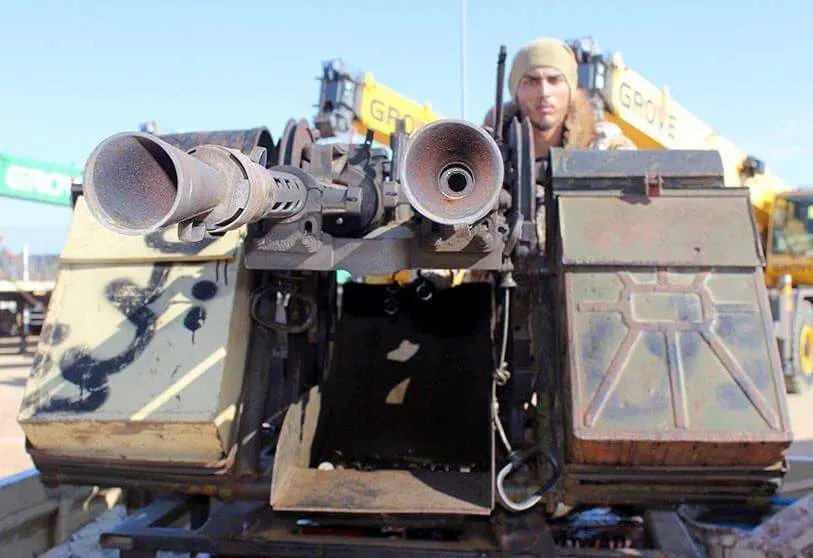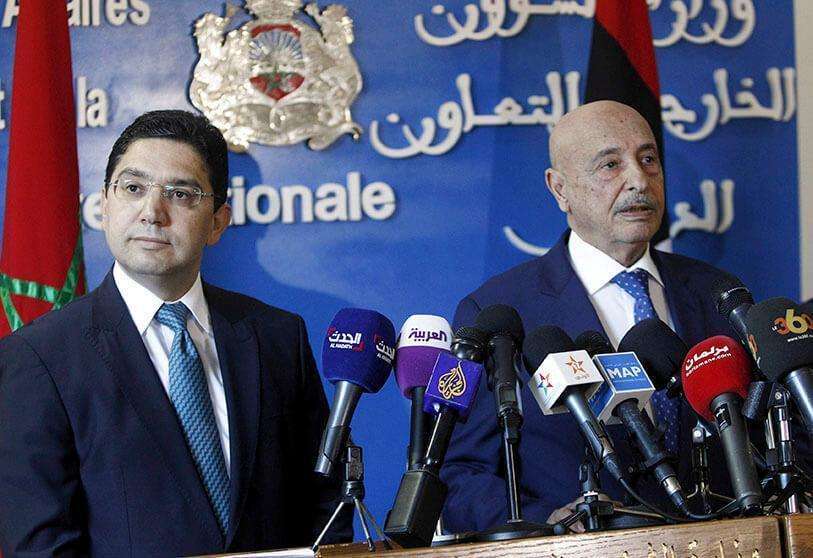Libya, the long and winding road to peace

Hope has returned to Libya after more than nine years of war. Delegations from the Libyan High Council of State and the Parliament in Tobruk have reached an agreement after five days of talks in Bouznika, Morocco. The aim of this meeting was to "maintain the ceasefire and open negotiations to end the conflict between the Libyan parties", according to reports from last Sunday, the day on which the talks began.
In a joint statement on Friday, the two parties announced that they reached a comprehensive agreement on the criteria, mechanisms, and objectives for “assuming positions of sovereignty”, in agreement with the Moroccan Ministry of Foreign Affairs. Both parties vowed to continue the dialogue launched in Morocco and to resume these meetings during the last week of this month in order to complete the necessary measures to ensure the enforcement and activation of this agreement.
The foreign ministry of the Alaouite kingdom explained that the two parties involved in the Libyan conflict have asked the United Nations and the international community to "support Morocco's efforts to create the right conditions for a comprehensive political solution in Libya". They stressed that Morocco’s assistance will help them overcome the crisis and work towards meeting the Libyan people’s hopes and aspirations to build a civilian and democratic State that enjoys peace, security and stability.
The two parties affirmed that their meetings in Bouznika took place in “a friendly and fraternal atmosphere marked by understanding and consensus”. "These talks have been held in response to the current situation in the country, a “very dangerous situation that threatens the integrity of the state, its territorial integrity, and sovereignty, resulting from foreign interventions that revive wars and regional and ideological alignments", they said during their speech.
Finally, the communiqué published by the Moroccan Foreign Ministry stressed that the talks in Morocco were in accordance with Article 15 of the Skhirat Agreement and an affirmation of the outcomes of the Berlin Conference, both of which support a political solution to the Libyan crisis. Furthermore, the parties blamed "the political and institutional vision" for the loss of citizens' confidence in the legislative and executive institutions.

Libya is a polarised country characterised by both ethnic plurality and religious homogeneity. Following the execution of Muammar al-Qadhafi in October 2011, the North African nation has become a country marked by fragmentation. Almost nine years later, this state is a nation divided between the areas controlled by the internationally recognised Government of National Accord, on the one hand, and the territory controlled by the authorities in the east, loyal to the Haftar militias, on the other. The conflict has intensified following Haftar's announcement in April 2019 of an offensive to take control of the country's capital. Since then, foreign powers such as Turkey and Russia have increased their presence in the region, which is considered a strategic point because of the country's oilfields.
At the first meeting between the Libyan High Council of State and the Parliament in Tobruk since its ceasefire declaration, Moroccan Foreign Minister Nasser Bourita made it clear that the aim of the consultations is to "maintain a ceasefire". For his part, the European Commissioner for Enlargement and Neighbourhood Policy, Olivér Várhelyi, said that once a ceasefire had been reached in Libya and the political process resumed, the European Commission would help the country to emerge from the crisis and to build an efficient economy, as well as a system prepared to deal with migration.
The unstable situation in this fragmented country has triggered the anger of the population. In the last few hours, dozens of people have taken to the streets to protest against the government and to show their weariness of the constant power cuts. In this scenario, the international organisation Human Right Watch has reported that between August 23 and 29 several armed groups arbitrarily arrested 24 demonstrators in the capital, including a journalist reporting on these protests, beat some of them and used several weapons to disperse the demonstrators.
These protests began in Tripoli, Misrata and Zawiyah on August 23, following a newly formed student movement called Harak Al-Shabab 23/08 that protested against both the eastern and western authorities "for the unbearable living conditions" in the country. The demonstrators are demanding social justice and elections, something that the GNA promised after announcing the ceasefire. These protests extended to cities such as Zliten or Khoms, east of the capital, and Sebha and Obari in the south.
“Political divisions and security concerns do not justify armed groups coming at protesters with machine guns and anti-aircraft weapons to intimidate them and disperse protests,” said Hanan Salah, senior Libya researcher for HRW. “Tripoli authorities should investigate and publicly disclose the names of the armed groups and commanders who failed to comply with basic policing standards and hold them to account.”
Meanwhile, the coronavirus continues to spread throughout the country. The pathogen has killed at least 339 people in the North African nation. Over the past few weeks, the number of confirmed COVID-19 cases in Libya has more than doubled, according to data released by the WHO, which has said that the actual number of cases is likely to be much higher.








